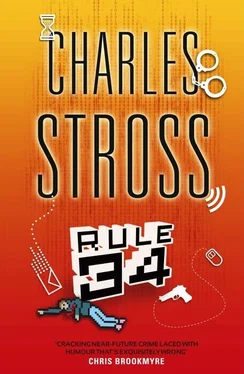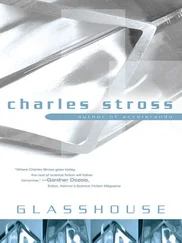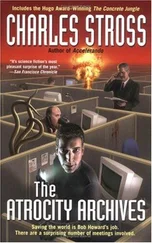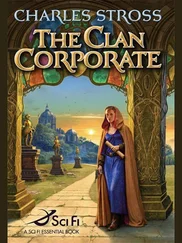She listens quietly until you get to the way he chucked you out, and what you thought, the safeword. “Did he rape you?” she asks, gently enough. But you can feel the tension in her fingertips, rubbing.
“No. Yes. Maybe: I’m not sure.” You take a deep, ragged breath. “I… it was regrettable sex. I shouldn’t have done it and felt really bad afterwards, kind of sick… I think he might have raped me, if I’d wanted to stop short. But we didn’t go there. Not at that time.”
“At. That time.” Her finger motion stops, leaving your wrist limp and open to the air. She’s pulled completely away, withdrawn without your noticing. “What happened then?”
You take a deep breath. “That’s when it got weird. I went back to my room, wedged the door. Then there was a work email.”
“Work.” You’ve been avoiding eye contact up to now, afraid of seeing what your confession is doing to her. But you force yourself to look up. To your surprise, she looks thoughtful. There’s no contempt or anger or hatred; she looks almost… business-like ? “What kind of work?”
“Head office wanted a special type of assessment performing, a sociopathic disorder assessment on a named executive. It was him. Liz, I should have seen it coming before—I mean, I was just stupid . John Christie is a narcissistic psychopath—”
“ Who did you say?”
You flinch. “John, uh, Christie? He said he got picked on at school for it, sharing a name with a murderer—”
“No, wait. Stop right there.” Liz is looking at you with a very odd expression on her face. “Would you mind describing him? I mean, how tall is he? How old? How much does he weigh—”
Now you’re on the receiving end of an inquisition—but it’s not at all what you expected. Part-way through, Liz reaches for a pair of specs and switches them on. She seems to be looking something up. Then she takes them off again, holding them carefully, as if afraid they might explode in her hands.
She stares at her specs. “Jesus, Dorothy.”
“I’m—” You lick your lips. “You don’t hate me?”
Her gaze flickers across you, sweeping you from top to toes. She looks profoundly disturbed: stunned, even. “Jesus, Dorothy, you’re lucky to be alive .”
“But he—” You do a double-take. “Is he a murderer?”
She won’t meet your eyes. “I don’t know. Hopefully not; but he’s certainly a psycho, and what happened to you—are you sure it wasn’t rape?”
Your mind goes blank. You try to think back to what you were thinking in the run-up to dinner, in the lift up to his room… skulking away with your tail between your legs. Showering to forget his touch. (Why didn’t you use the safeword—were you afraid he wouldn’t stop? Were you enjoying it? It’s so confusing.) “If it’s rape, there’s a script to follow, isn’t there?”
“Yes, but you don’t have to worry about that.”
“The hell I don’t.” Your throat’s raw. “There were no witnesses. Okay, so suppose I say ‘yes’ and you take me round to the station where a trained counsellor talks me through giving a report and taking”—you swallow—“samples. And let’s suppose you, uh, your people go and arrest him. At that point it’s his word against mine, and you know what his advocate will make of my background? Polyamory still doesn’t get equal rights, never mind civil partnerships… I just get dragged through the mud, and to what end?”
“But you’ve got—” Liz jolts to a stop, like a Doberman at the end of a choke chain. She’s staring at you. “Oh,” she says softly.
“Oh, indeed.” You reach out your hand towards her. “You don’t want this, Liz. You don’t know what you’re opening yourself up for.”
After a moment, she takes your hand.
“It wasn’t rape,” you say, trying to keep any trace of doubt out of your voice for her sake. “But I’m really worried about the, the other thing.”
“Yes, I’d say you should be.” Liz is silent for a few seconds. “I’d like to take a statement, though. All the same.”
“What? But I told you, it wasn’t non-consensual—”
“Not about the sex: about the appraisal.”
You shiver. “I’d rather not. If you don’t mind.”
She sits down beside you on the futon. “It’s, it’s about Christie. He’s, uh, a person of interest in another investigation. We want to question him in relation to a violent crime. I can’t tell you about it right now, but what you’d told me—it’s really important. My colleagues—they need to know about this. Do you mind if I file at least a contact report?”
You sniff, then rub a hand across your eyes. There’s no mascara or eye-liner, luckily: You stripped before you showered. “You’re going to insist, aren’t you?”
She manages a weak smile. “You said it: I didn’t.”
“Oh hell.” You struggle to sit up. “Just… do you mind if I stay overnight? I can’t face that room…”
“You can stay,” she says neutrally. “I’ll take the futon.” She pulls her police specs on again, then pauses, one finger hovering over the power button. “I still love you, you know. I just wish things weren’t so messy.”
Then she pushes the button.
“People laugh when they hear the phrase ‘artificial intelligence’ these days.” MacDonald is on a roll. “But it’s not funny; we’ve come a long way since the 1950s. There’s a joke in the field: If we know how to do it, it’s not intelligence. Playing checkers, or chess, or solving mathematical theorems. Image recognition, speech recognition, handwriting recognition. Diagnosing an illness, driving a car through traffic, operating an organic-chemistry lab to synthesize new compounds. These were all thought to be aspects of intelligence, back in the day, but now they’re things you can buy through an app store or on lease-purchase from Toyota.
“What people think of when you say ‘artificial intelligence’ is basically stuff they’ve glommed onto via the media. HAL 9000 or Neuromancer —artificial consciousness. But consciousness—we know how that shit works these days, via analytical cognitive neurobiology and synthetic neurocomputing. And it’s not very interesting . We can’t do stuff with it. Worst case—suppose I were to sit down with my colleagues and we come up with a traditional brain-in-a-box-type AI, shades of HAL 9000. What then? Firstly, it opens a huge can of ethical worms—once you turn it on, does turning it off again qualify as murder? What about software updates? Bug fixes, even? Secondly, it’s not very useful . Even if you cut the Gordian knot and declare that because it’s a machine, it’s a slave, you can’t make it do anything useful. Not unless you’ve built in some way of punishing it, in which case we’re off into the ethical mine-field on a pogo-stick tour. Human consciousness isn’t optimized for anything, except maybe helping feral hominids survive in the wild.
“So we’re not very interested in reinventing human consciousness in a box. What gets the research grants flowing is applications —and that’s what ATHENA is all about.”
You’re listening to his lecture in slack-jawed near comprehension because of the sheer novelty of it all. One of the crushing burdens of police work is how inanely stupid most of the shit you get to deal with is: idiot children who think ‘the dog ate my homework’ is a decent excuse even though they knew you were watching when they stuck it down the back of their trousers. MacDonald is… well, he’s not waiting while you take notes, for sure. Luckily, your specs are lifelogging everything to the evidence servers back at HQ, and Kemal’s also on the ball. But even so, MacDonald’s whistle-stop tour of the frontiers of science is close to doing your head in. Then the aforementioned Eurocop speaks up.
Читать дальше












